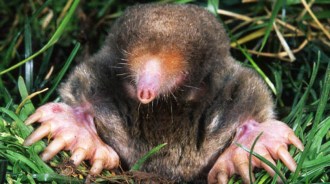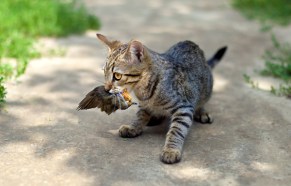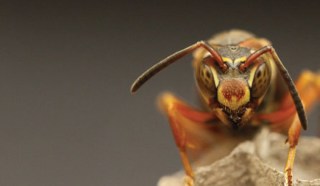Animals
-
 Animals
AnimalsCompared with rodents, bat species carry more viruses
Viruses that can jump from animals to people may find the flying mammals a fine place to lurk.
By Susan Milius -
 Animals
AnimalsMole sniffs the world in stereo
Nostrils of the common mole recognize slight differences in smells to steer it toward its food.
-
 Animals
AnimalsCats kill more than one billion birds each year
New analysis doubles estimate of avian death tolls, revealing that hunting felines take bigger bite out of wildlife than expected.
By Susan Milius -
 Animals
AnimalsDung beetles steer by the Milky Way
The insects orient themselves using starlight, researchers find in planetarium experiments.
By Susan Milius -
 Animals
AnimalsFinally, the truth about barnacle sex is revealed
A genetic analysis shows that the sessile crustaceans can broadcast sperm in water, contrary to previous assumptions.
By Susan Milius -
 Animals
AnimalsIntegrative and Comparative Biology
The hormonal roller coaster that is male pipefish pregancy and collision safety features for flying insects.
By Susan Milius -
 Animals
AnimalsClaims of fairness in apes have critics crying foul
A report that chimps divvy up rewards much as people do draws criticism.
By Bruce Bower -
 Science & Society
Science & SocietyInsect illustrator
Taina Litwak is an “art department of one” in D.C. for the U.S. Department of Agriculture’s Systematic Entomology Laboratory.
By Roberta Kwok -
 Animals
AnimalsEarly arthropod had a fancy brain
A 520-million-year-old fossil of a segmented animal shows that sophisticated central nervous systems are surprisingly ancient.
By Erin Wayman -

-
 Animals
AnimalsRight eye required for finding Mrs. Right
Finches flirt unwisely if they can only use their left eyes.
By Susan Milius -
 Animals
AnimalsFace Smarts
Macaques, sheep and even wasps may join people as masters at facial recognition.
By Susan Milius